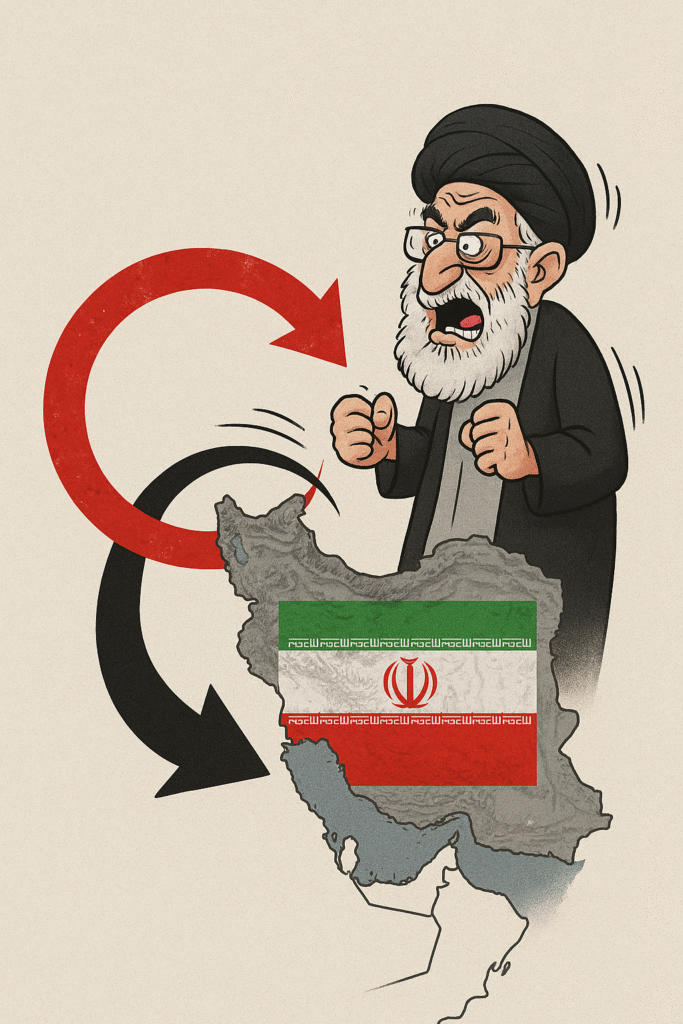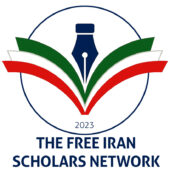Dr. Sofey Saidi, (PhD, International Relations), Geneva School of Diplomacy & International Relations
July 20, 2025

The UK, France & Germany (the “E3”), along with the EU’s foreign policy head, have given Iran until the end of August to reach a verifiable nuclear deal. If not, they plan to invoke the snap‑back mechanism, automatically reinstating all UN sanctions lifted under the 2015 JCPOA.
French FM Jean‑Noël Barrot has reiterated this deadline and emphasized that, absent concrete commitments from Iran, sanctions on arms, finance, and nuclear technology would roll back by late August
There has been much emphasis placed on utilizing diplomatic channels to resolve the Iran Nuclear deadlock. At present, the most significant and viable path is to engage the agreed upon global mechanism through the United Nations via enforcing the return of the sanctions on the theocratic government of Iran. The snapback mechanism, embedded in United Nations Security Council Resolution 2231, is a powerful diplomatic tool that allows participating states of the Iran nuclear deal (JCPOA) to reimpose all previous UN sanctions on Iran if it is found to be in significant non-compliance. Although the mechanism was designed as a deterrent, Iran’s continued violations of the JCPOA and its destabilizing regional behavior have reignited debates about activating it. Invoking the snapback mechanism would serve not only as a necessary response to Iran’s provocations but also as a broader strategy to restore international credibility, curb nuclear proliferation, contain regional aggression, and reinforce the rules-based international order.
Halting Nuclear Proliferation
At the core of the JCPOA was a trade-off: Iran would limit its nuclear program in exchange for relief from international sanctions. However, Iran has repeatedly breached key restrictions on uranium enrichment, stockpiling, and centrifuge development. Tehran’s enrichment levels have climbed dangerously close to weapons-grade levels, reducing the so-called “breakout time” needed to develop a nuclear weapon.
Currently, Iran possesses more than 270 kilograms of 60% enriched Uranium. It is technically, only a few steps away from producing a bomb. Clearly, a regime that simultaneously tests its ballistic missiles to carry nuclear warheads, is no longer just a potential threat.
Triggering the snapback mechanism would reimpose stringent UN sanctions, including the arms embargo, restrictions on ballistic missile development, and economic penalties. This would significantly raise the costs for Iran’s nuclear escalation and increase global pressure to return to compliance. A nuclear-armed Iran would spark a proliferation cascade in the Middle East, prompting countries like Saudi Arabia and Turkey to pursue their own nuclear programs. By reestablishing robust sanctions, the snapback could halt this dangerous trajectory and reinforce the global non-proliferation regime.
Restoring Diplomatic Credibility
Diplomacy only works when enforcement mechanisms are credible. The JCPOA included the snapback precisely to ensure that Iran would not cheat without consequences. Allowing Iran’s violations to continue without invoking this clause sends a signal of weakness and indecision to both Iran and other rogue actors worldwide.
If the international community demonstrates that violations of major agreements incur real penalties, it can restore faith in multilateral diplomacy. For allies in the Middle East—especially Israel and the Gulf states—invoking snapback would demonstrate that the West has the resolve to hold Iran accountable. It would also send a broader message to adversaries like North Korea that nuclear non-compliance will not be tolerated.
Reinstating the Arms Embargo
One of the most tangible benefits of the snapback mechanism is the automatic restoration of the UN arms embargo on Iran, which expired in 2020 under the JCPOA timeline. Since then, Iran has been freer to legally procure and sell advanced weapons, including drones, missiles, and conventional arms. Iran has used these capabilities to arm proxies like Hezbollah, the Houthis in Yemen, and militias in Iraq and Syria.
Restoring the arms embargo would limit Iran’s ability to export destabilizing weapons across the region, thereby reducing the frequency and lethality of proxy conflicts. For instance, Iranian drones have been used not only in Middle Eastern battlegrounds but also by Russia in its war against Ukraine, posing a global security threat. Reimposing arms restrictions would curb Iran’s capacity to fuel these conflicts and prevent further entrenchment of its military networks abroad.
Pressuring Iran’s Economy
Economic sanctions remain one of the few effective tools short of military force to influence Iran’s behavior. Iran’s economy, heavily reliant on oil exports, is vulnerable to international isolation. By reinstating UN sanctions, the snapback would reimpose restrictions on financial transactions, oil sales, and access to global markets. This would squeeze Tehran’s budget, limiting its ability to fund both its nuclear ambitions and its regional adventurism. While sanctions alone may not change policy, combined with diplomatic engagement, they create leverage that is otherwise absent.
Strengthening the Rules-Based International Order
The integrity of the global rules-based system depends on the consistent application of international agreements. If Iran faces no consequences for breaking its commitments, the principle of accountability is eroded. Countries observing this laxity may conclude that international norms are flexible and violations risk little more than verbal condemnation.
By activating the snapback, the international community reaffirms the value of binding agreements and the enforcement mechanisms attached to them. This is particularly critical in an era where authoritarian regimes are testing the limits of international law, from maritime aggression in the South China Sea to human rights abuses. Consistent enforcement strengthens institutions like the United Nations and upholds the credibility of multilateral governance.
Rebalancing Regional Power Dynamics
Iran’s growing influence in the Middle East has tilted the balance of power, exacerbating sectarian tensions and proxy wars. Tehran’s support for Hezbollah in Lebanon, Shiite militias in Iraq, the Assad regime in Syria, and the Houthis in Yemen has destabilized the region. The snapback mechanism can constrain Iran’s ability to project power.
Conclusion
The benefits of Invoking the snapback mechanism on Iran, are clear and substantial. It reinforces non-proliferation, restores diplomatic credibility, revives the arms embargo, applies economic pressure, strengthens international norms, rebalances regional power, and reduces the need for military intervention. The mechanism was designed for precisely this scenario—significant non-compliance—and failing to use it undermines the very framework built to prevent nuclear escalation. In an increasingly volatile world, the international community cannot afford to let such violations go unchallenged.
In the wake of the recent 12-day war between Israel and the Iranian regime, that was ostensibly meant to eliminate the mullahs’ nuclear bomb-making capabilities, the need for decisive international action has become clearer than ever. What happened in the Middle East in June 2025, was a final wake-up call: the mullahs’ nuclear threat is real, immediate, and global. Perhaps this war would have been avoided if the snapback mechanism had been activated, after Tehran’s flagrant and repeated violations of the JCPOA four years ago
It should be noted that the Iranian regime’s secret nuclear weapons program was first revealed by the National Council of Resistance of Iran (NCRI) in August 2002. This information, which aroused global concern and action by the International Atomic Energy Agency (IAEA), was obtained by the People’s Mojahedin Organization of Iran (PMOI) network inside the country.
The only remaining tool for restoring comprehensive Security Council sanctions is to trigger the “snapback” under Resolution 2231.
The time for the political brinksmanship is over. Every day of procrastination brings us closer to the brink of war.
